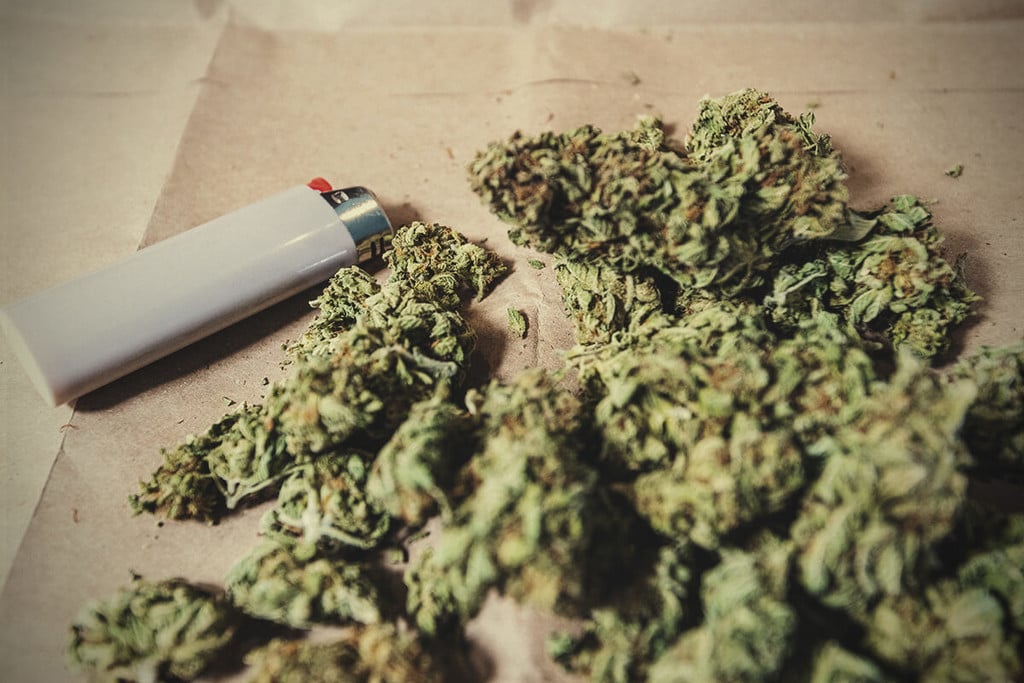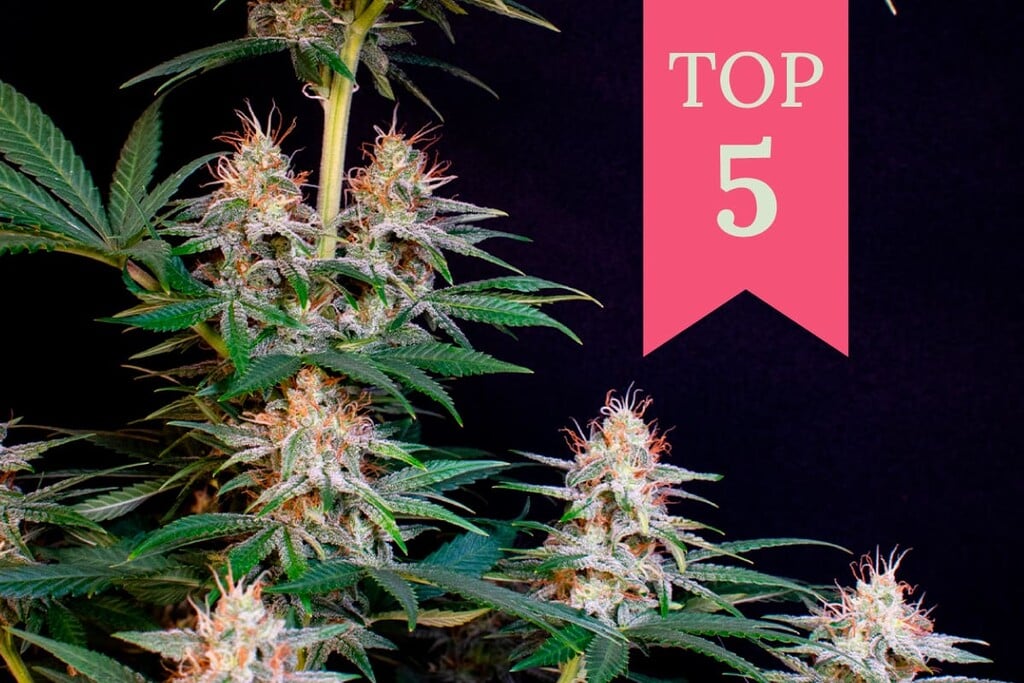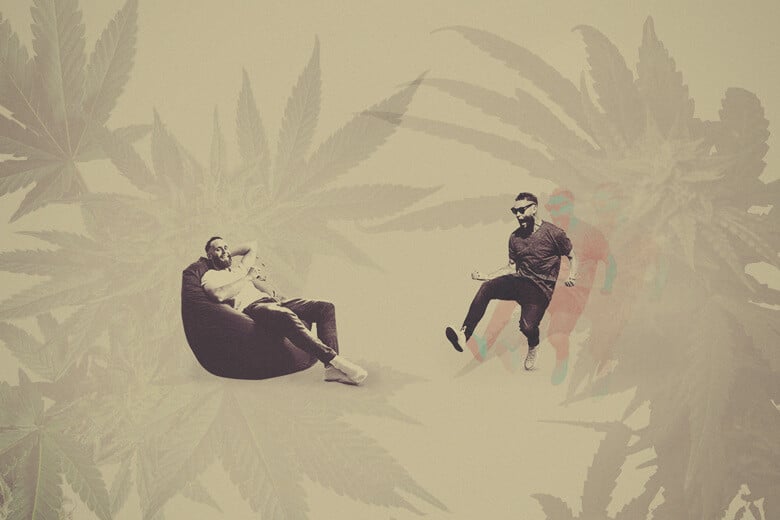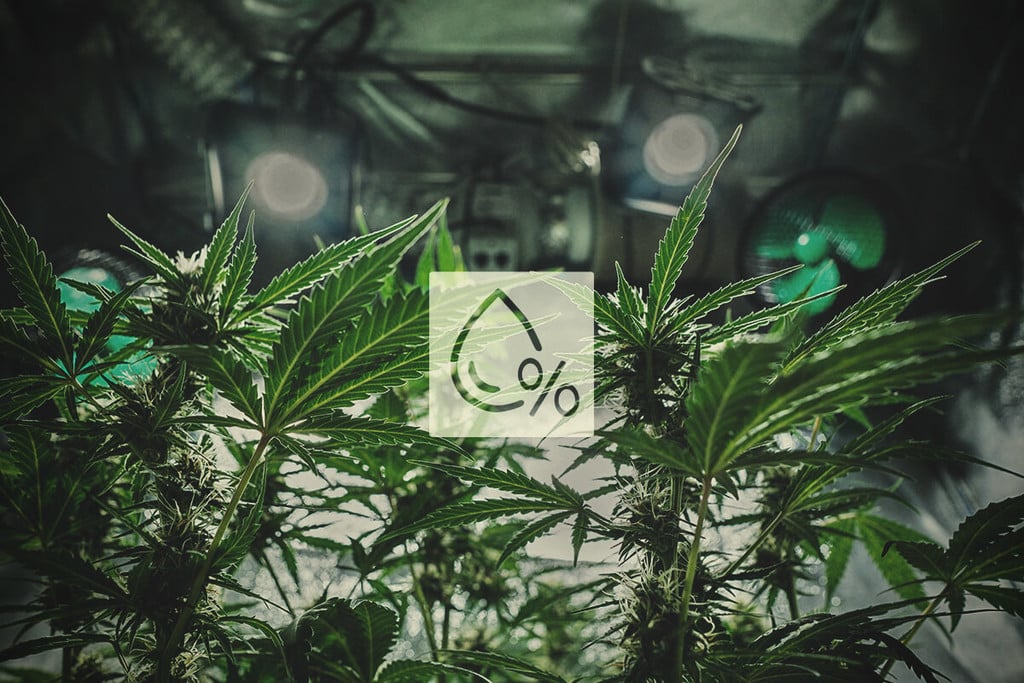.
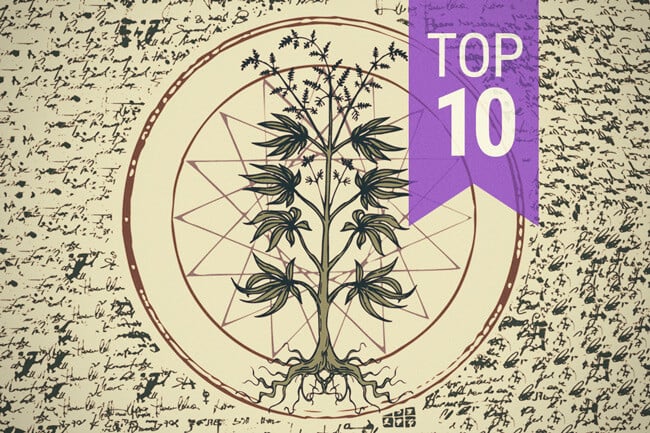
Top 10 Myths About Cannabis
Cannabis remains an esoteric herb in the eyes of many people. Common myths keep the herb shrouded in mystery and prevent people from developing a true understanding of the plant. Join us as we debunk 10 of the most common myths about cannabis. Some of them wrongly suggest that cannabis is a gateway drug, whereas overs are overly positive.
How odd that a naturally occurring herb whipped up such a storm in human civilisation.
Although several countries have legalized cannabis to some degree, with a bunch of others set to follow, many obscure myths are still associated with the plant. Most of these fly in the face of science, yet dissenters still use them to uphold draconian laws.
On the other hand, overly positive myths herald cannabis as a miracle substance with almost no downsides at all, which is ultimately also harmful to the plant's image.
Contents:
- Clearing up 10 myths about marijuana
- Cannabis use leads to higher levels of crime
- Cannabis is a gateway drug
- Cannabis is a dangerous, addictive drug
- Cannabis isn’t addictive at all
- You can overdose on cannabis
- Cannabis users are lazy
- The indica & sativa effects dichotomy
- Weed hangovers don’t exist
- There isn't a cannabis withdrawal effect
- Holding a hit will intensify your high
Clearing Up 10 Myths About Marijuana
Below, we take a dive into the top 10 myths surrounding marijuana. But, we need to consider the bias that exists on both sides. Just as many anti-cannabis groups work to skew reality, over-enthusiastic parties have also generated a few myths of their own. Using an unbiased approach, we'll tackle the most prolific weed myths, in hopes of viewing the plant in a more transparent light.
1. Cannabis Use Leads to Higher Levels of Crime
By default, the prohibition of cannabis makes using, growing, or selling the herb a crime. This status naturally drives the plant’s presence in the black market, alongside other, harder drugs such as cocaine and heroin. While gang-related violence pervades this underbelly, cannabis use itself doesn’t drive crime—its illicit status does.
When a legal cannabis market is set up, however, licenced and taxed dispensaries take the cannabis trade away from black market retailers, weakening the power of its members.
Moreover, smoking cannabis hasn’t been proven to make individuals more prone to committing a crime. Sure, more offenders happen to use cannabis—and other drugs in general—but correlation doesn’t equal causation.
Contrary to some belief, cannabis legalization hasn’t appeared to contribute[1] to any sort of statistical rise in violent crime. Interestingly, though, many anti-weed campaigners fail to highlight the monumental amount of violent crime associated with alcohol use[2], despite its legal status.

2. Cannabis Is a Gateway Drug
We all had that lecture in school. The one where anti-drug groups stand in front of hundreds of children and effectively transmit the message that it “only takes one toke”. Although their intentions (may) come from a good place, such organisations typically lump all drugs together and portray the idea that once you try one, you’ll stray down a dark path and sample them all.
This simply isn’t true.
Millions of cannabis users around the world enjoy the herb regularly, without even entertaining the idea of harder drugs. Additionally, many people start using harder drugs without ever touching cannabis in the first place.

3. Cannabis Is a Dangerous, Addictive Drug
The claim that cannabis is a gateway drug often draws from the argument that it, like hard drugs, can grip users within a cycle of addiction. However, the plant differs dramatically from the addictive mechanisms behind substances such as heroin and cocaine. Unlike these drugs, cannabis generally doesn’t cause severe addiction or withdrawal symptoms.

4. Cannabis Isn’t Addictive at All
While many cannabis users smoke weed without developing an addiction, people can become addicted in some circumstances. How exactly this addiction is defined (i.e. physical vs psychological dependence), and to what degree, is complex—but it is a possibility. Although some cannabis advocates attempt to deny this point, science states that cannabis isn’t a perfect, harmless substance.
While weed can help people in many different ways, cannabis use disorder is real. By increasing dopamine levels and eventually blunting the dopamine system[3] with long-term use, cannabis can influence the brain's reward system and create an addictive cycle.
However, this trait isn’t unique to cannabis. According to physician and addiction expert Gabor Mate, trauma underpins all addictions[4], and addiction can manifest as cannabis smoking, materialism, and obsession with all manner of external factors. Therefore, proponents would struggle to use this claim as a reason to maintain cannabis prohibition.

5. You Can Overdose on Cannabis
Many lives are lost every year to alcohol, cocaine, heroin, and other drugs. However, almost nobody dies from cannabis consumption alone. Why? Because cannabinoids, the active constituents of the plant, don’t interface with the area of the brain responsible for breathing.
In regard to opioids, overdose occurs as receptors within breathing centres of the brain become overwhelmed. They create a depressive effect that impairs breathing, potentially leading to death. Cannabis cannot produce the same effect, which is why there are no reported deaths from cannabis used alone.

6. Cannabis Users Are Lazy
Cannabis users face a host of different stereotypes. Among the labels of “addict” and “junkie”, the accusation of laziness probably gets tossed around the most. Sure, smoking weed can sometimes lead people to favour crashing on the couch over going for a run.
However, many successful, active, and athletic people use cannabis. Joe Rogan built a podcasting empire while stoned. Michael Phelps demolished the competition in the swimming pool while hitting the bong. Thousands of successful people all over the world love to enjoy weed in their downtime, much like others arrive home after work and pop open a bottle of wine.

7. The Indica & Sativa Effects Dichotomy
Cannabis culture spends a lot of time debunking myths from the outside, but even those involved in the industry fall victim to misinformation. For the past few decades, anyone with even a slight interest in cannabis knew the difference between stoning “indica” strains and energising “sativa” strains.
Cannabis science has since challenged this view, with neurologist and cannabis expert Dr Ethan Russo labelling it as “nonsense”. This categorisation might help dispensaries market cannabis, but it just doesn’t stand up to scrutiny.
Some indica varieties contain energising terpenes, whereas some sativas stone the body and mind. Plus, plants of the exact same strain can even produce different effects when grown in different environments.
Instead of depending on these loose means of compartmentalising cannabis, research suggests scrapping the term “strain” altogether, and replacing it with “chemovar[5]” (chemical variety) to truly get an idea of a plant's effects and chemical diversity.

8. Weed Hangovers Don’t Exist
The debate between alcohol and cannabis users rages on. Those that stand by the herb often make the point that they wake up feeling fresh and ready for action in the morning. While true, smoking half an ounce the night before comes with a hangover of its own.
Cannabis hangovers are nothing compared to the devastation of those brought on by alcohol use. However, they can still impact the way you feel the next day, producing brain fog, lethargy, red eyes, and headaches. When enjoyed in moderation, though, one can easily wake up and be ready to take on their daily tasks.
Like with an alcohol hangover, some water and food will get you back on track. Unlike with alcohol, though, it should take a lot less time to feel like your old self again.

9. There isn't a cannabis withdrawal effect
Although many seasoned cannabis users would love to believe that cannabis doesn't cause withdrawal, unfortunately, it's not true. Much like with weed hangovers, cannabis withdrawal is a real thing.
However, much like with a hangover, cannabis withdrawal symptoms are pretty mild, especially compared to alcohol and other drugs.
Regular users who stop can experience the following symptoms, which can vary from person to person, for a couple of weeks:
- Irritability
- Headaches
- Disrupted sleep
- Flu-like symptoms
- Feelings of sadness and anxiety
Fortunately, it does not last too long and is not often severe. If you are looking to alleviate symptoms, some of the best things you can do are stay hydrated, eat healthier, exercise and practice relaxation techniques.

10. Holding a Hit Will Intensify Your High
As cannabis lovers get older, they typically lose the competitiveness that comes with just starting out. Younger users often brag about taking the biggest hits, holding their breath for a minute straight, and handling the high the most impressively.
After the novelty of cannabis begins to wane, these same users often become more relaxed and realise that everyone enjoys the herb in their own way. They also quickly realise that you don’t need to hold in a hit for ridiculous amounts of time to enhance the high.
In fact, there’s no science to support the idea that holding your hit increases the amount of THC absorbed. On the contrary[6], it likely does not[7].
All of that THC immediately passes into the blood after entering the lungs. If you want to get higher, just smoke more! Don’t waste your time practising for the freediving world championships if you’re not planning on competing!

- The Cannabis Effect on Crime https://www.tandfonline.com
- Alcohol-Related Crimes: Statistics and Facts - Alcohol Rehab Guide https://www.alcoholrehabguide.org
- Cannabis blunts the brain's reward system | Imperial News | Imperial College London https://www.imperial.ac.uk
- How dealing with past trauma may be the key to breaking addiction | Life and style | The Guardian https://www.theguardian.com
- Cannabis - from cultivar to chemovar - PubMed https://pubmed.ncbi.nlm.nih.gov
- Download Limit Exceeded http://citeseerx.ist.psu.edu
- Breathhold duration and response to marijuana smoke - PubMed https://pubmed.ncbi.nlm.nih.gov


























